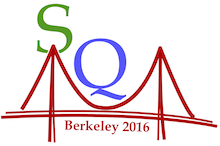Speaker
Vladimir Skokov
(Brookhaven national laboratory)
Description
In this talk we discuss possibilities of studying the onset of
Bose-Einstein condensation in strangeness and isospin sector of QCD.
At finite temperature, the condensation of kaons (pions) may occur if
the strangeness (isospin) chemical potential is large enough and the
temperature is sufficiently small for the relevant mesonic degrees
of freedom to be present. Direct lattice QCD study of kaon
condensate phase (at a non-zero µ_s) is hindered by the sign
problem. The lattice QCD studies of the pion condensation are in
principal possible, but have not yet been performed for realistic
QCD. High energy heavy-ion collision experiments also cannot
directly probe the condensation phenomena, because the corresponding
chemical potentials achieved are too small. In this talk we propose
to probe the condensation phenomena using the higher order
fluctuations of the corresponding charges. First the general analytic
structure of the QCD phase diagram will be reviewed. Next, using the
hadron resonance gas model, as well as Functional renormalization
group improve quark meson model we will demonstrate what can be
learned about the condensation onset. We also discuss possibilities
of probing the phase boundaries of these condensate phases in high
energy heavy-ion experiments using higher order kaon and pion
fluctuations.
Authors
Swagato Mukherjee
(Brookhaven National Laboratory)
Vladimir Skokov
(Brookhaven national laboratory)
